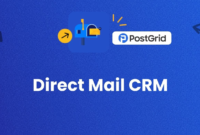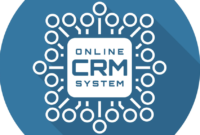Best CRM Software for Small Businesses: Empowering Growth and Efficiency
Introduction
Customer Relationship Management (CRM) software is an essential tool for businesses looking to streamline operations, improve customer service, and drive growth. While large enterprises have long benefited from CRM solutions, small businesses are increasingly adopting CRM systems to enhance their customer interactions and optimize their sales processes.
However, choosing the right CRM software can be challenging, especially with the wide range of options available. For small businesses, affordability, ease of use, and scalability are key considerations. In this article, we’ll explore the best CRM software for small businesses, highlighting their features, benefits, and why they are well-suited for small-scale operations.
What is CRM Software?
CRM software helps businesses manage and analyze customer interactions and data throughout the customer lifecycle. It enables businesses to improve customer relationships, streamline sales processes, and drive profitability. CRM tools typically offer features like contact management, sales tracking, task automation, and reporting.
For small businesses, CRM software is vital for staying organized, automating repetitive tasks, and keeping customer data easily accessible for better service and marketing.
Key Features to Look for in CRM Software for Small Businesses
When evaluating CRM software for small businesses, it’s essential to look for features that align with your needs. Here are the most important features to consider:
- Contact Management: The ability to organize and access customer information in one central location.
- Sales Pipeline Management: Tools to track and manage leads through the sales process.
- Email Integration: Integration with popular email platforms like Gmail and Outlook for seamless communication.
- Task Automation: Automating repetitive tasks such as follow-up emails, lead assignment, and reminders.
- Analytics and Reporting: Basic reporting features to track key metrics such as sales performance, customer interactions, and campaign success.
- Customization: Ability to tailor the CRM to your business needs, such as custom fields and workflows.
- Mobile Access: Mobile apps to manage your CRM on the go.
- Affordability: For small businesses, cost-effectiveness is crucial. Look for options with flexible pricing plans.
Best CRM Software for Small Businesses
1. HubSpot CRM
- Key Features:
- Contact management and lead tracking.
- Email marketing integration.
- Task and activity management.
- Pipeline management and deal tracking.
- Reporting and analytics.
- Free plan with unlimited users.
- Why It’s Great:
HubSpot CRM is one of the most popular CRM tools for small businesses. It offers a powerful free version with essential features that allow small businesses to manage contacts, sales, and marketing all in one place. The free plan supports unlimited users, making it ideal for growing teams. As your business scales, HubSpot offers affordable paid upgrades with more advanced features like automation and reporting. - Limitations:
Some advanced features, such as marketing automation, are only available in the paid version.
2. Zoho CRM
- Key Features:
- Lead and contact management.
- Email and social media integrations.
- Task automation and workflow management.
- Customizable reporting.
- Mobile app and integrations with other Zoho apps.
- Why It’s Great:
Zoho CRM is a versatile tool with a free plan for up to three users, making it a great option for small teams. It offers a wide range of features, including lead scoring, automation, and integration with other popular software like Google Workspace and MailChimp. Zoho’s intuitive interface and affordability make it perfect for small businesses that want to streamline their customer management processes. - Limitations:
The free plan has limited features and may require upgrading to access more advanced options.
3. Freshsales (Freshworks)
- Key Features:
- Lead, contact, and deal management.
- Built-in email and phone capabilities.
- Sales pipeline management.
- Reporting and analytics.
- Workflow automation and AI-powered lead scoring.
- Why It’s Great:
Freshsales is known for its user-friendly interface and powerful sales tools, making it ideal for small businesses that need to manage their sales pipeline efficiently. The free plan includes contact management, deal tracking, and email integration, and it provides an easy-to-use dashboard to track customer data. Freshsales also offers an AI-powered assistant that helps prioritize leads based on engagement and behavior. - Limitations:
The free version has limited automation capabilities, and businesses may need to upgrade to access advanced features like AI insights and reporting.
4. Pipedrive
- Key Features:
- Visual sales pipeline to track leads and deals.
- Task automation and email integration.
- Customizable reports and analytics.
- Mobile app for remote access.
- Activity tracking and reminders.
- Why It’s Great:
Pipedrive is a simple yet powerful CRM that focuses on sales pipeline management. Its visual interface makes it easy to see where leads are in the sales process, and it offers tools to automate repetitive tasks like follow-up emails and reminders. Pipedrive’s free plan is great for small businesses that want to stay organized and improve their sales processes. - Limitations:
The free plan is limited in functionality, and businesses looking for advanced features will need to upgrade.
5. Insightly
- Key Features:
- Contact and project management.
- Task tracking and activity management.
- Sales pipeline and opportunity management.
- Email integration and reporting.
- Customizable dashboards.
- Why It’s Great:
Insightly offers a free plan for small teams and provides powerful CRM features combined with project management tools. This is particularly useful for small businesses that need to track both customer relationships and project progress. Insightly’s CRM is easy to use, and its integration with Google Workspace, Office 365, and other apps adds to its versatility. - Limitations:
The free plan is limited to only two users, and businesses with more team members will need to upgrade to access additional features.
How to Choose the Best CRM for Your Small Business
When choosing a CRM for your small business, consider the following:
1. Define Your Needs
Identify the key features that will most benefit your business. For example, if you’re focused on improving sales, choose a CRM with strong pipeline management. If customer service is your priority, look for a CRM with robust contact management and ticketing features.
2. Consider Ease of Use
Select a CRM that’s easy to navigate and doesn’t require extensive training. Many CRM providers offer free trials, so take advantage of this to test the interface and usability.
3. Scalability
Look for a CRM that can grow with your business. Even if you’re starting small, it’s important to choose a platform that can scale as your team expands.
4. Customer Support
Good customer support is essential, especially when you’re implementing a new system. Choose a CRM that offers responsive support channels, such as live chat, email, or phone.
5. Integration
Ensure the CRM integrates with the tools your business already uses, such as email platforms, social media, and accounting software.
Conclusion
Choosing the best CRM for your small business can have a significant impact on customer relationships and overall business efficiency. Tools like HubSpot, Zoho CRM, Freshsales, Pipedrive, and Insightly offer powerful features at an affordable price—often for free or with affordable plans to fit small business budgets.
By evaluating your business needs and testing different platforms, you can find a CRM that will streamline your processes, improve your customer service, and drive growth. Start with a free CRM to get your business organized, and scale up as needed to continue improving customer interactions and boosting sales.




